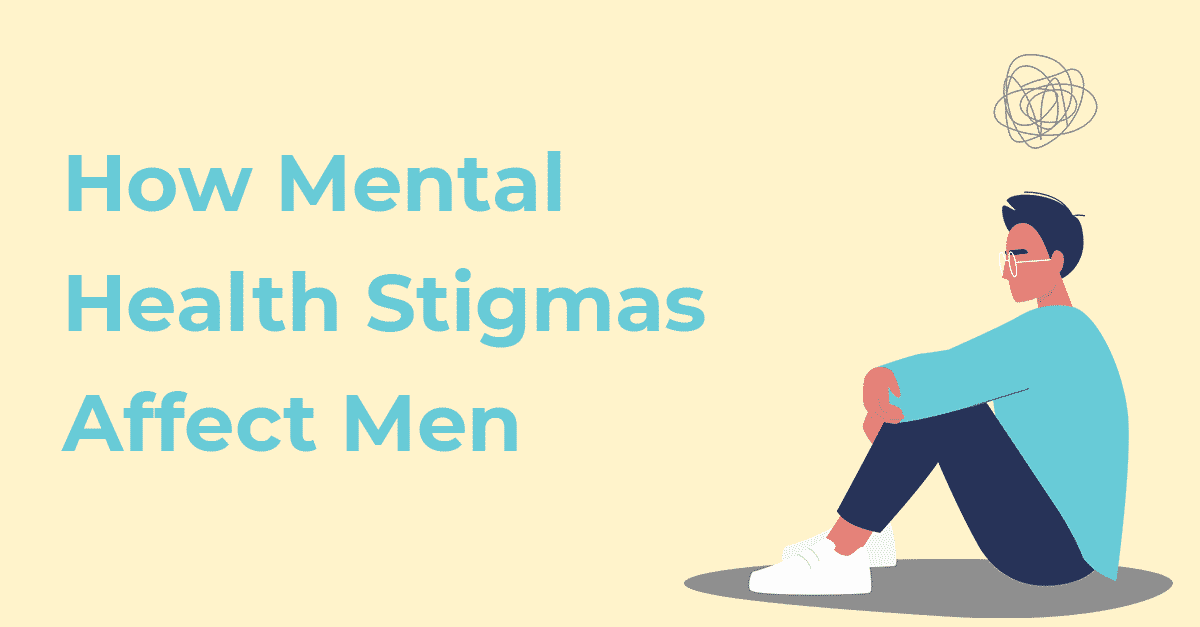Men’s Mental Health.
What does that bring up for you? For some that might sound like an oxymoron. Shedding light on common challenges, myths, and stigmas hopefully will create a safe space for the conversation on men’s mental health. By building awareness and illuminating the stigmas, they then become less confining, the challenges appear less daunting, and the myths are shown to be discernibly false.
It is a tremendous challenge to work against long-standing barriers, as any systemic changes or cultural shifts are no small feats; especially if they’re compounded by obstacles looming in the darkness.
Cultivating awareness is generally a solid foundation to begin facilitating positive, lasting change.
In honor of June being Men’s Health Month, let’s courageously move into the dark, see what’s lurking, identify barriers, and shine a light on looming consequences in attempts to avoid them.
With the hopes of increasing awareness, providing mental health resources for men, and improving mental health and wellness, not only on an individual level for men but permeating to increased well-being on a societal scale for any person!
In order to set the stage for the conversation, I will highlight some challenges, myths, and stigmas that exist today in men’s mental health.
Men's Mental Health: Common Challenges, Myths & Stigmas
Challenges
- When I share feelings, it will be a burden to the listener.
- Tried once, “not for me”
- Maladaptive coping is normalized – specifically outbursts, alcohol, and/or drug use
- Men generally don’t ask for help
- Common phrases heard or said to men from a young age often become the voice inside their head, “Man up,” “Don’t be such a… (select one of few derogatory gender discriminating digs),” and “boys/men don’t cry.”
- There are many more emotion suppressing examples and images saturating media that work against feeling, sharing, and thinking asking for help is an appropriate option.
Myths
- Some disorders don’t affect men – i.e., eating disorders, body dysmorphic disorder
- A friend or partner is all that is needed for support
- Talking about feelings or experiences doesn’t help anything
Stigmas
- Something seriously wrong/abnormal with me if I go to see a therapist
- Feeling depression or any suffering equates to weakness with vulnerability likely sounding like a foreign language
- These barriers feed into an overarching issue summed up in two words - toxic masculinity
What is Toxic Masculinity
Toxic masculinity is a complex, unrecognized diagnosis. It can be defined as suppressing, masking, not feeling, or understanding emotions. Emotional expression is primarily limited to anger and irritability or more destructive emotions such as rage and aggression. Additionally, attempting to maintain an image of being hard, tough, or overly self-sufficient.
According to Medical News Today symptoms of the toxic masculinity might show up as some of the following;
- aggression
- sexual aggression or control
- showing no emotion or suppressing emotions
- hyper-competitiveness
- needing to dominate or control others
- increased substance abuse
- a tendency towards or glorification of violence
- isolation
- low empathy
- entitlement
- chauvinism and sexism (homophobia, transphobia, and/or misogyny)
Arguably the direct consequences resulting from toxic masculinity and stigmatized mental health reside in the following alarming facts. According to American Foundation for Suicide Prevention in 2019, men died by suicide 3.63x more often than women.
Additionally, according to the Centers for Disease Control and Prevention (CDC) of all alcohol-attributable deaths, more than 70% involved men.
Excessive alcohol use is responsible for more than 95,000 deaths in the United States each year, or 261 deaths per day. These deaths shorten the lives of those who die by an average of almost 29 years - 29 years is a generation!
According to National Coalition Against Domestic Violence (NCADV), 72% of all murder-suicides involve an intimate partner; 94% of these murder-suicide victims are female.
Men’s Mental Health: Confronting the Challenges, Stigmas, and Myths
- Feeling like a burden is likely a much bigger burden to those around you and certainly yourself - if you need help and do not seek it out.
- Tried once – Productive therapy can often take a few attempts and some shopping around to find a good fit. The therapeutic relationship has the rare potential to be one of those life-changing relationships and making a connection on the first attempt is possible, but if you don’t at least give yourself a shot and take a couple more swings.
- Alcohol or drug use equates to coping – Volumes of data show alcohol and/or drug use leads to a plethora of physical ailments, and mental health disorders, and exacerbate mild symptoms.
- Men don’t ask for help to keep up an image of being “strong” – the days of John Wayne and Mad Men are long gone. Here are some men who fit into today’s masculine stereotypes who have sought out mental health support for men and found benefit; Kobe Bryant, Jay-Z, Kid Cudi, Kanye West, Ryan Reynolds, Tyson Fury, Michael Phelps, Pete Davidson, DeMar DeRozan, Brandon Marshall, Kevin Love, Logic, and countless others who despite seeking treatment remain in a shadow cast by stigma.
- Some disorders don’t affect men – the vast majority of mental health struggles and disorders don’t have limits in adults based on socioeconomic status, race, gender, age, religion, or anything else other than - are you human? Men and women may be affected differently, but no one has immunity, men can even suffer from paternal postpartum depression.
- A friend or partner is enough for support – there are some key differences between using someone in your life and a therapist for support. With a therapist, space is dedicated for you to take up and the time set aside to focus solely on your needs. Whereas with friends, reciprocity is important or resentment will build when it becomes one-sided.
A therapist has extensive training and has an outside objective stance on how to help and heal, those in our lives regardless of intent or being conscious of it have their own agendas and histories seeping into the dynamic. Strict confidentiality laws reduce fear around consequences being tied to being honest, vulnerable, and exploring feelings such as shame - no one will find out the things you say in therapy.
To be clear, if you have friends or family that are supporting it is a tremendous benefit to your well-being and I encourage you to lean into them, but sometimes you may need something different, feel burdensome, or they might get tired of listening. - Something seriously wrong if you see a therapist – I imagine you still get oil changes and tune-ups if your car is running perfectly; hopefully go to the doctor for a physical despite no symptoms; still go to the gym if you’re in good shape, and even Michael Jordan improved his game in being coached. Mental health is so deeply connected to physical health and well-being you might want to stay tuned up!
- Showing vulnerability or experiencing depressive symptoms equates to weakness – It takes tremendous courage to be vulnerable and be willing to remove masks/pretenses, look at our authentic self, and relationships, and be honest. It can be difficult to admit when life gets us down, but likely not faking anyone out who really knows you, they see you hiding behind other emotions. No reason to hide, if the vulnerability is tied to courage and courage is historically viewed as a sign of masculinity and strength, vulnerability is… STRONG.
So “man up!” Be courageous, observe and feel your emotions, explore your relationships, and most importantly, look at the relationship you have built with yourself. It will undoubtedly benefit you and those you care about.
Written By: Kevin Vail, LPC, NCC
Clarity Clinic
At Clarity Clinic, we have highly trained staff who specialize in psychotherapy and psychiatry services for men's mental health issues. To learn more about how we can support your mental health, call Clarity Clinic at (312) 815-9660 or schedule an appointment today.
Schedule Now



